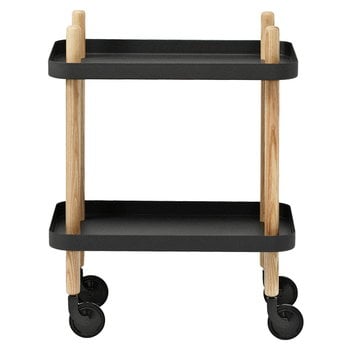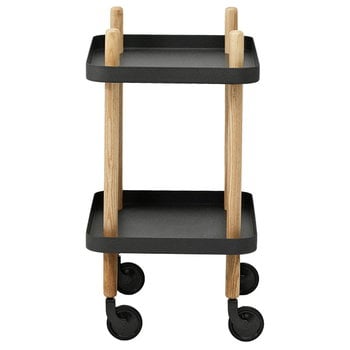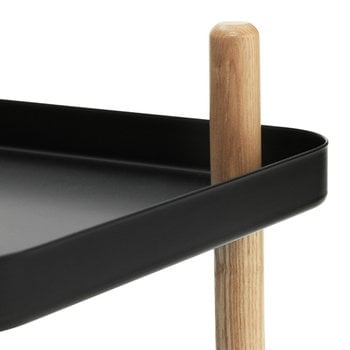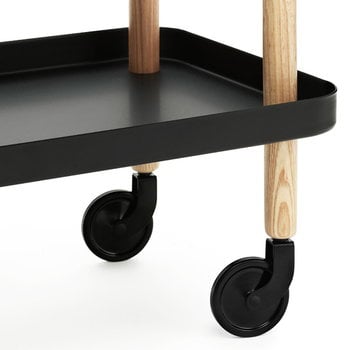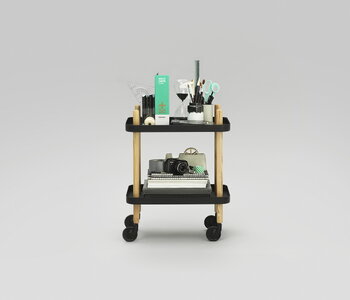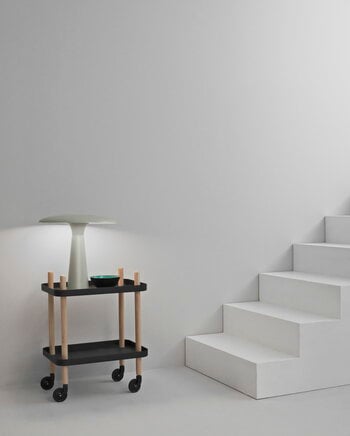Block, designed by Simon Legald for Normann Copenhagen, is a versatile small trolley that can be used as a tea trolley in the dining room, coffee table in the living room or nightstand in the bedroom. As the Block comes with wheels, it’s easy to move from one place to another. The ash wood frame adds a light and natural touch to the industrial expression of the steel wheels and tabletops. Block is easy to assemble and no tools are needed.
Block table trolley, black
Normann Copenhagen
Description
Block, designed by Simon Legald for Normann Copenhagen, is a versatile small trolley that can be used as a tea trolley in the dining room, coffee table in the living room or nightstand in the bedroom. As the Block comes with wheels, it’s easy to move from one place to another. The ash wood frame adds a light and natural touch to the industrial expression of the steel wheels and tabletops. Block is easy to assemble and no tools are needed.
Product details (8)
- Colour
- Black, natural ash
- Length
- 50 cm
- Width
- 35 cm
- Height
- 64 cm
- Material
- Steel, ash
- Maximum load capacity
- 10 kg
- Measurement details
- Maksimikuormitus 10 kg / hylly
- Weight
- 8.8 kg
Designer
Simon Legald (born 1986) is a Danish designer. Legald graduated during the summer 2012 and he already has several own designs in production. When asked about his own style and design aesthetics, he describes them as "honest with nordic simplicity".
View all productsReviews (0)
Sustainability
This product does not yet have a sustainability rating.
Learn more.
Chat to us online
Please enable functional cookies to use this feature. You can change your cookie settings at any time.
